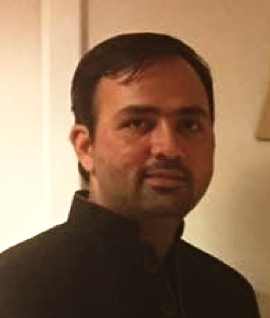Cornerstone: Pakistan: Religious Identity and Religious Freedom
The role of religious identity in Pakistan has been an important part of the history of Pakistan. Many of the present day conflicts, from intercommunal violence to blasphemy laws, occur along the fault lines of religious communities. As Farahnaz Isphani has argued in her recent book, Purifying the Land of the Pure, there has been a sense in which rather than protecting the rights of all religious groups, the Pakistani state and society has sought to “purify” the community. From its pre-independence population of 20.5% non-Muslims, the present number of non-Muslim minorities is estimated at less than 4%. The factors that have contributed to this are numerous and the present day implications for all Pakistanis – Muslim and non-Muslim alike – are concerning. Hostilities and restrictions have been directed not only at non-Muslims, but non-Sunnis or those who would defend views considered outside the accepted orthodoxy.
What are the current challenges that are faced by Pakistan’s religious minorities? What can be done to promote a religious freedom that protects the rights of all Pakistani’s to freely believe as they wish, act on those beliefs, and participate in all of life?
A series of experts from Pakistan and around the world have contributed articles answering these questions.
By Muhammad Akram
When it comes to rights for religious minorities, Pakistan is the focus of much international controversy, even though Pakistan’s religious minorities constitute just 3.7% of its population of about 205 million. These rights include freedom of religion, economic opportunities, political representations, and socio-identical acceptability of minorities by the Muslim majority and state.
I have experienced that there is a Muslim voice for the protection of equal citizenship rights for religious minorities, and it is encouraging that at least a few Muslim religious leaders and other groups recognize they need to play an active role in this regard. They are involved in different ways to address the issues of religious minorities in the country.
By Mustafa Akhwand
While freedom of expression was a basis of separation of the territory we now recognize as Pakistan from India, religious intolerance has plagued the nation. Religious minorities have been targeted and limited in expression.
The real question is, what has caused the growth of hatred and unacceptance in a nation born from the struggle for freedom?
By Lisa Curtis
Pakistani Prime Minister Nawaz Sharif made an important gesture toward Pakistan’s religious minorities when he gave a speech March 14, 2017 criticizing Islamist extremist ideology at an event celebrating a Hindu holiday. In his speech, made in Karachi on the festival of Holi, he said, “Pakistan was not made so one religion can dominate over others.…Pakistan’s creation itself was a struggle against religious oppression.”
These are profound statements that deserve repetition and reinforcement, particularly if Pakistan wants to win the battle against terrorism.
By Minhas Majeed Khan
The creation of Pakistan in 1947 brought hopes not only to Muslims but also to religious minorities. The founding father, Quaid–e–Azam Mohammad Ali Jinnah, envisioned a state that represents all communities in policy making. For Jinnah the spirit of nationhood [National Identity] was to live in unity, that is, each individual ceasing their faiths whether Hindu, Christian, Sikh or Muslim. Not in a religious sense, because that is their personal faith [Religious Identity], but in a political sense as the citizen of the state [National identity]. Unfortunately, after his death, his predecessors deviated from the ideology he defined.
By Farahnaz Ispahani
Pakistan’s treatment of its religious minorities has attracted global condemnation for years. Aware that the world sees Pakistan as insecure for religious minorities, Pakistan’s leaders are now engaging in symbolic gestures of concern for minorities after years of appealing just to majority sentiment. But positive gestures such as Muslim politicians attending Diwali celebrations alongside Hindus or showing up at Christian Christmas events has done little to abate the wave of extremism that has progressively endangered all of Pakistan’s minorities.
















